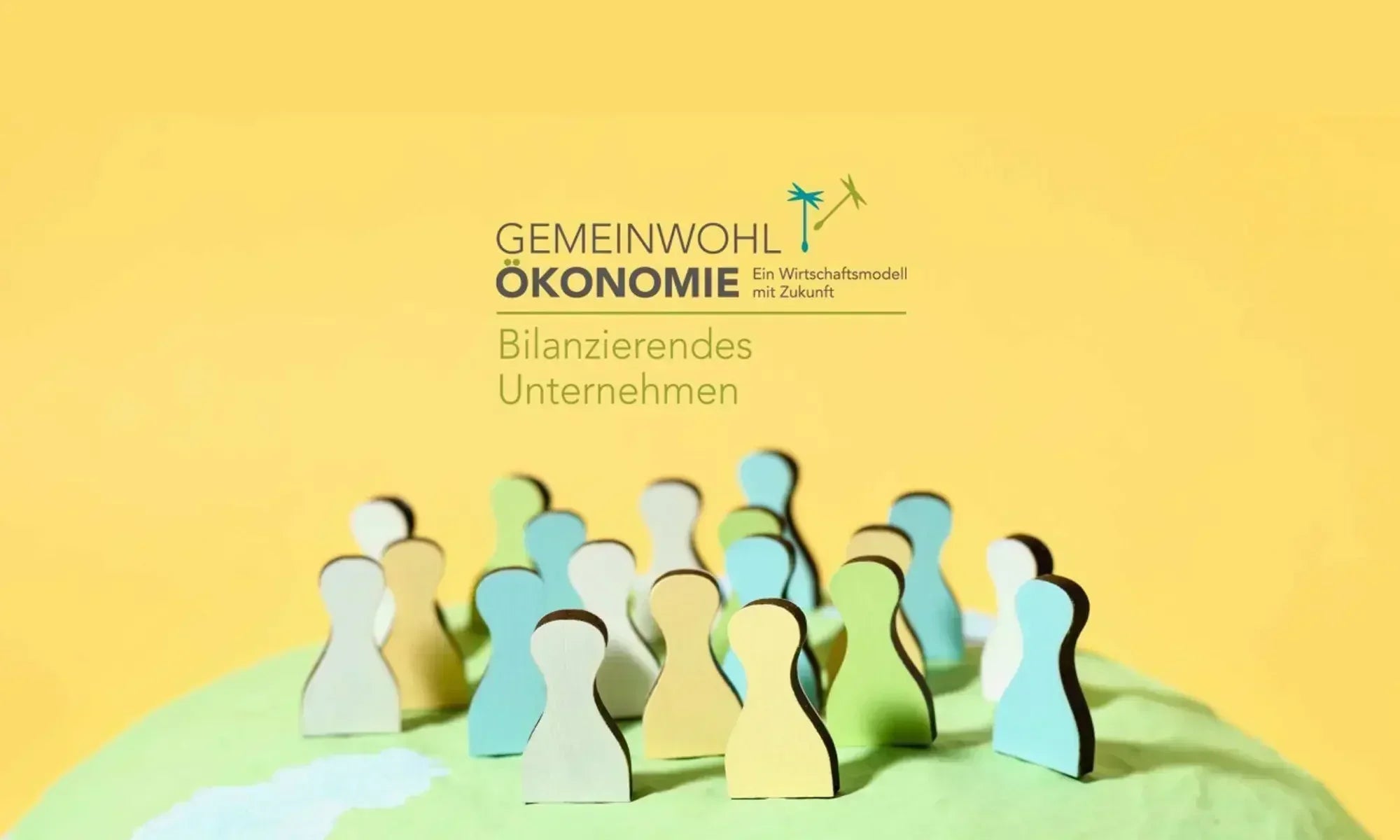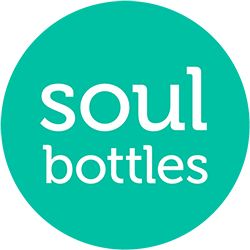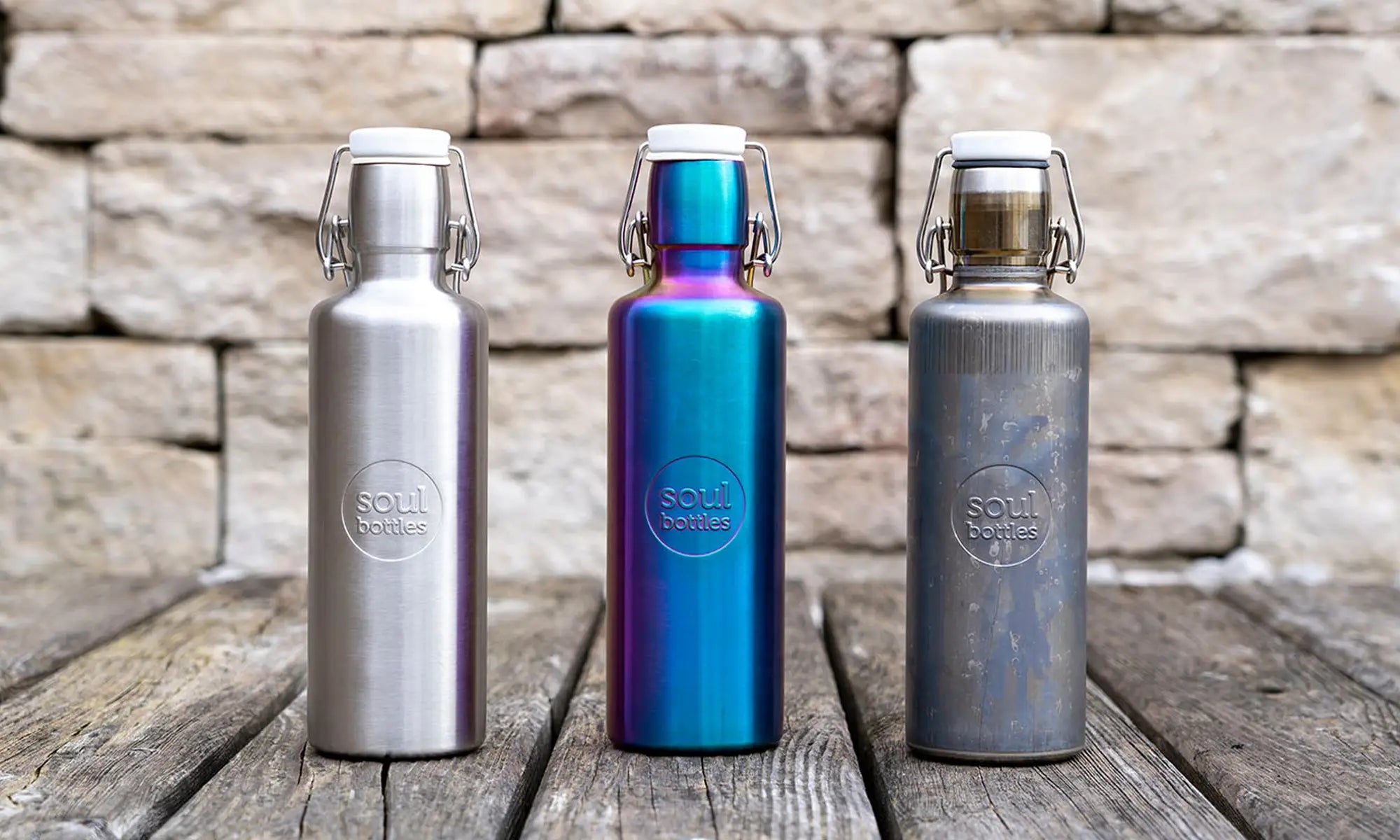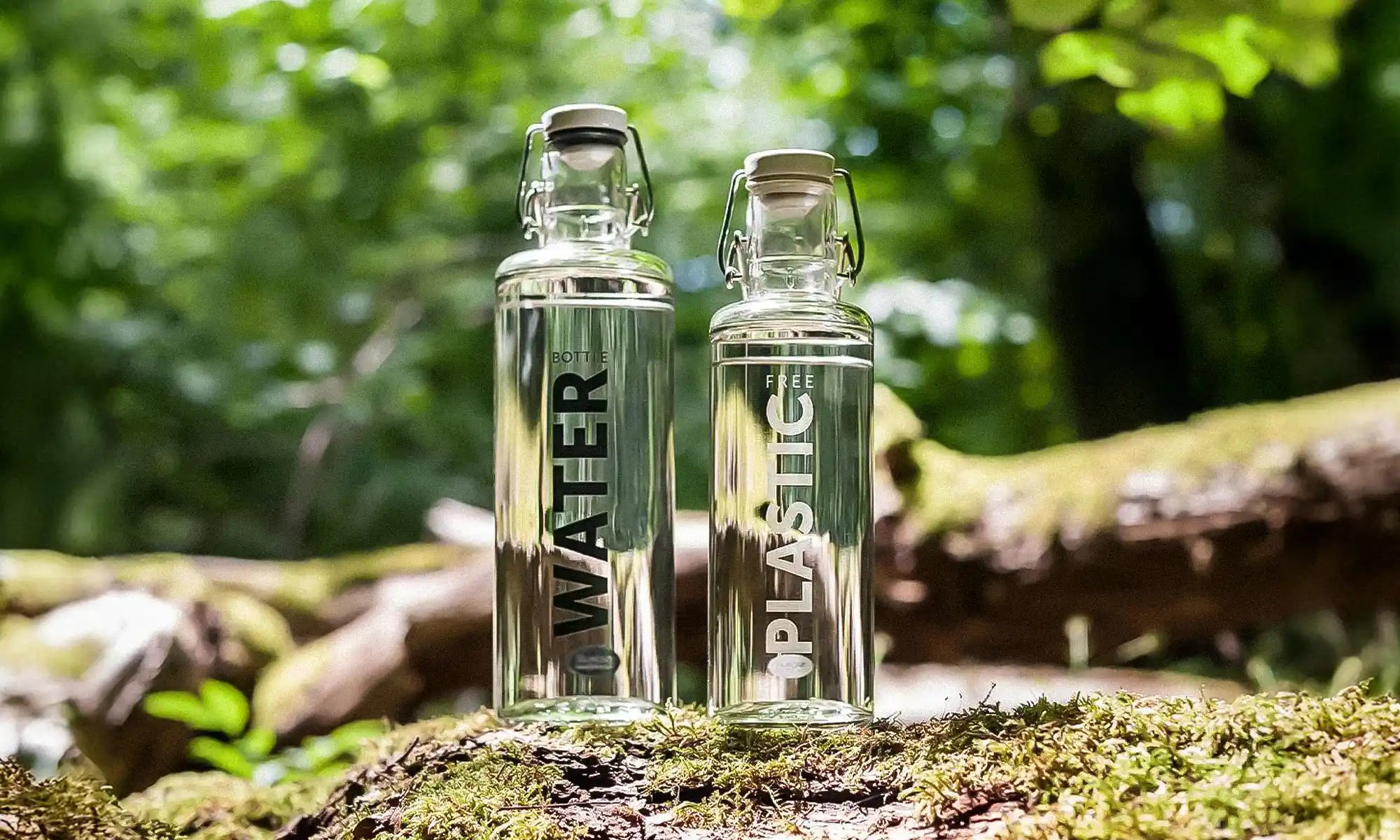
We are a public welfare company – with a record-breaking score!
The accounting for the common good company was just the beginning! Now it's here: our first soulbottles Impact Report!
You probably thought this blog post would be the end of the topic? Far from it! The GWÖ assessment was the perfect opportunity to take a closer look at our work over the past eight years. What exactly is our positive contribution to people and the environment? What was the key to soulbottles' record-breaking score in the GWÖ assessment? And, also very importantly: What do we want to do even better in the future? To compile the answers to all these questions in a well-structured format, we have invested a great deal of time and effort over the past few months in the Impact Report project (as it is called in German). And we are very proud of the results:
Here is our first comprehensive soulbottles Impact Report!
Feel free to give us feedback! This lovely little company history is just the beginning; more reports will follow.
Here below in the blog you can, of course, read the facts in brief about GWÖ accounting, as usual:
As of now, soulbottles is an official company of the Economy for the Common Good (Economics for the Common Good). Through our membership and financial reporting, we demonstrate once again that the well-being of people and the environment should be the primary goal of our business – and we have consistently implemented this philosophy in various areas since our founding.
872 out of 1000 points for soulbottles – one of the best scores ever achieved!
On February 19, 2020, the results of our peer review were finally announced at the Regional Conference of the Economy for the Common Good in Berlin: With 872 out of 1,000 possible points, it was one of the best results achieved worldwide. Soulbottles thus demonstrates that ethical, sustainable, and purpose-oriented business practices are not "just" good for people and the environment, but also function as a successful business model in practice.
Let's take a step back: What does the common good economy actually mean, what is accounting, and how does the common good economy fit into soulbottles?
We were consciously founded as a socially responsible, sustainable, and purpose-driven company. This includes, for example, examining every step of our supply chain according to criteria of social justice and ecological sustainability, reinvesting our profits for positive impact, and creating access to clean drinking water through the sale of our products – in just a few weeks, we will have exceeded the one million euro donation to Viva con Agua de Sankt Pauli eV. Our form of ownership as a purpose-driven company, which allows us, the employees, to own the company and ensures that our use of profits is legally bound to our purpose forever, also reflects our vision: the vision of an economy in which values and the well-being of people and the environment are the highest goal of every organization. A world in which genuine added value and solving social or ecological problems take precedence over profit-making, in which stakeholders are more important than shareholders, and companies operate within the ecological limits of our planet and with secure social and ecological foundations for all people.
We have been putting our vision into practice since the beginning, demonstrating that profitable business can also be socially and sustainably sustainable. However, we don't just want to align our internal decisions with this vision; we also want to contribute in the best possible way to social, political, and economic system change.
That's why, through our membership, participation, and certification, we support other initiatives and movements that are committed to a fairer world, greater sustainability, and a meaningful economy. We have been a B Corp company since 2016, and we have also been committed to improving the political framework for social enterprises for years with the Social Entrepreneurship Network Germany (SEND eV). In 2019, we co-founded the Responsible Ownership Foundation, are committed to the climate demands and strikes of Entrepreneurs for Future—and as of now, we are also an official member of the Economy for the Common Good and a publicly accounted for Common Good company!
GWÖ: a movement and certification for business oriented towards the common good
The Economy for the Common Good (ECG) was launched in 2010 and has since represented a different form of business. At the political, social, and economic levels, the common good should become the focus of business activity and replace profit as the primary goal. Corporate profits serve to increase the common good—that is, people and the planet—and not the other way around. A successful company is thus measured not only by its financial success, but also by its contribution to the common good and the fulfillment of fundamental needs and values.
Values and contact groups form the matrix of the GWÖ accounting
To classify companies and measure their contribution to the common good, the GWÖ has established an accounting system. It is guided by the values of human dignity, solidarity and justice, ecological sustainability, transparency, and co-determination. Using the GWÖ matrix, it assesses the extent to which these values are implemented by each company's stakeholders: suppliers, owners and financial partners, employees, customers and fellow entrepreneurs, and society.
More than 2,000 companies – including sports manufacturer Vaude, energy supplier Polarstern, daily newspaper taz, Sparda Bank Munich and health insurance company BKK ProVita – 200 clubs, 20 municipalities and more than 7,000 private individuals have joined the movement so far.
Our reasons for joining the Economy for the Common Good and the accounting
Membership and accounting with the GWÖ is not cheap for a company of our size; the process involved six months of intensive work in the peer evaluation process, even though, as mentioned above, we are already a certified B Corp company.
Why did we decide to become a member of the GWÖ?
-
GWÖ stands for social, political and economic transformation and works on all three levels for systemic changes.
-
GWÖ does not exclude profit as a means to an end, as long as the positive contribution to people and the environment (the common good) remains the primary goal. This fits very well with our model as a social enterprise.
-
Furthermore, we want to use our membership to strengthen the GWÖ movement and contribute to its growth and success.
And what are the advantages of accounting and the GWÖ points system?
-
The holistic and in-depth approach to accounting considers all internal and external aspects of the company. That's precisely our goal!
-
Accounting allows us to have an external view and evaluation of our activities as a company and helps us to reflect on our work and identify potential for improvement.
-
Stronger networking and support in the region and among public interest-oriented companies.
-
In addition, the GWÖ label helps us to better communicate our impact to the outside world and to give customers security and confidence in our work.
How common good accounting works
The GWÖ balance sheet is the heart of the movement and serves as a tool for organizational development and the evaluation of corporate activities according to common good values. The process concludes with the publication of the certification and the Common Good Report; together, these form the Common Good Balance Sheet. The Common Good Report describes in detail how the company implements the 20 common good themes and serves as the basis for evaluating a company according to common good standards.
A company's concrete contribution to the common good is assessed based on its Common Good score. The score ranges from -3,600 to +1,000 points. The GWÖ uses the legal minimum requirements as a baseline of 0 points. This means that anything beyond this represents voluntary activities towards the common good – thus, the GWÖ starts at a fairly high level. The more common good-oriented activities a company implements, the more Common Good points it receives – for example, by promoting moderate consumption, by transparent and participatory interaction with stakeholders, or by an employee-oriented corporate culture. Companies receive negative points if they, for example, exploit their market power, cause unreasonable environmental pollution, or tolerate or even promote inhumane working conditions.
Our peer evaluation process
In July 2019, we launched the audit process together with four other companies (SODI eV, Kiezbett GbR, Organiced Kitchen, bittar. Worte und Zeichen stellen) and with the support of two GWÖ consultants, Urte Töpfer and Thomas Uloth. This type of audit is called peer evaluation, as our own entrepreneurial activities are assessed by other peer companies and the GWÖ consultants according to common good standards.
We opted for the compact balance sheet. Compared to the full balance sheet, the compact balance sheet presents the common good topics in a more condensed form. Companies with up to 50 full-time employees (including us) can use the compact version twice.
The final stage of the financial review will be the publication of the audit report and the Public Welfare Report. We will be abridged and graphically revisiting this report in the coming weeks to share it with you.
The review process was very valuable for us, as it allowed us to take a very close look at ourselves and gain an external perspective on our work. In many areas, it became clear that we already shared core values and ideas of GWÖ before the review: our decision to be a purpose-driven company, to offer all employees free vegetarian and vegan lunches, and to implement holacracy throughout the company.
At the same time, we also discovered that there are areas where the objectives of the GWÖ may not entirely correspond to our optimal scenario, or raise questions we haven't yet considered. Should we involve external stakeholders more strongly in our decision-making processes (and thus receive more points in this area)? Or would it be better to further develop our model of employee self-determination and participation?
The accounting also showed us potential for improvement and encouraged us to implement further measures in the future that will further strengthen our contribution to the common good: Even though we are already among the world's best companies ever to be accounted for, our development continues!
Overjoyed, proud – and motivated for the future
We ceremoniously received our results at the Berlin GWÖ conference, and as I type these words, I still feel a wonderful sense of pride, excitement, and gratitude. Learning that we had achieved one of the highest scores currently known within the inspiring community of GWÖ companies and sharing this moment with five colleagues was thrilling and unforgettable for me. It's a great feeling to be able to make such a contribution to the common good through our work and to inspire and support other companies. And at the same time, we know that the future holds full potential for impact for us.



